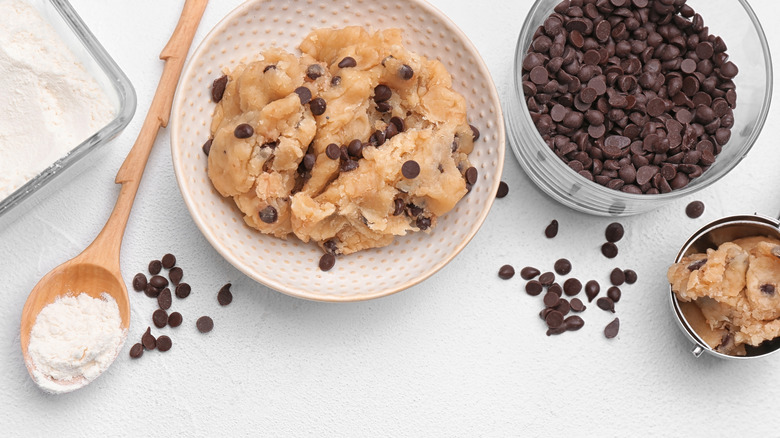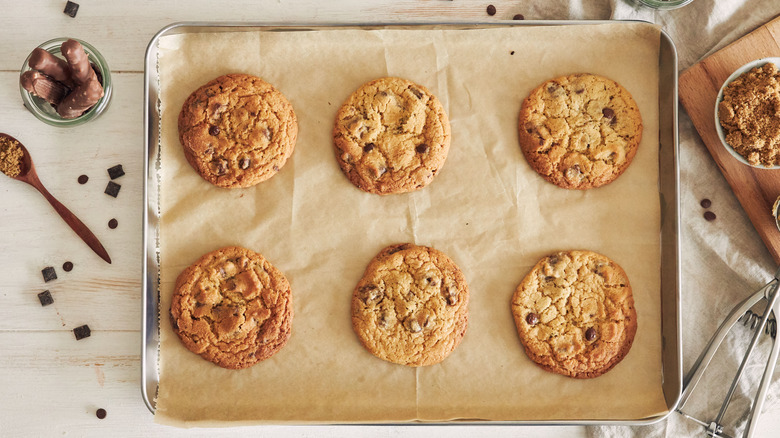This Is What Happens When You Put Too Much Baking Soda In Your Cookies
Have you ever put your cookies in the oven before realizing you forgot to add the baking soda? If so, you know that the resulting cookie is a lot flatter and denser without it. It's no secret that baking soda is a crucial ingredient in most cookie recipes. But there is such a thing as too much.
According to Cake Decorist, although baking soda is in fact responsible for producing fluffy, chewy cookies, more baking soda does not actually mean a fluffier and chewier cookie. In fact, if you add more than the recipe calls for, your cookie will lose its integrity in both texture and taste. The reason behind this is that baking soda is an active ingredient that releases carbon dioxide gas when mixed with a liquid. As Cake Decorist further elaborates, "baking soda works to spread the dough by raising the mixture's pH, which in return slows protein coagulation." A cookie dough with too high of a pH therefore will taste metallic and soapy. And because baking soda also introduces carbon dioxide, or air, to the dough, too much of it will create a cookie that's cakey rather than chewy.
What to do when you add too much
If you've accidentally poured in more baking soda than necessary into your mixing bowl, your first thought might be to scrap the whole batch. The good news is, you might be able to salvage it. The Spruce Eats recommends first attempting to scoop out as much extra baking soda as you can, assuming you haven't mixed it in the dough yet. Otherwise, you can also simply increase the amounts of the other ingredients. This method works well if you know how much more you added, for example, if you measured out 1 tablespoon instead of 1 teaspoon.
Unfortunately, if you've already mixed your dough, have no clue how much more baking soda you added in, or worse, already put the cookies in the oven, you will have to start over. Always Eat Dessert explains that baking soda is activated as soon as it's exposed to anything acidic. That means that once you mix the baking soda into the dough, the dough is already being altered. Let's not forget, baking is an exact science, so if you change the chemical properties of a cookie, it may not resemble a cookie in the end.

